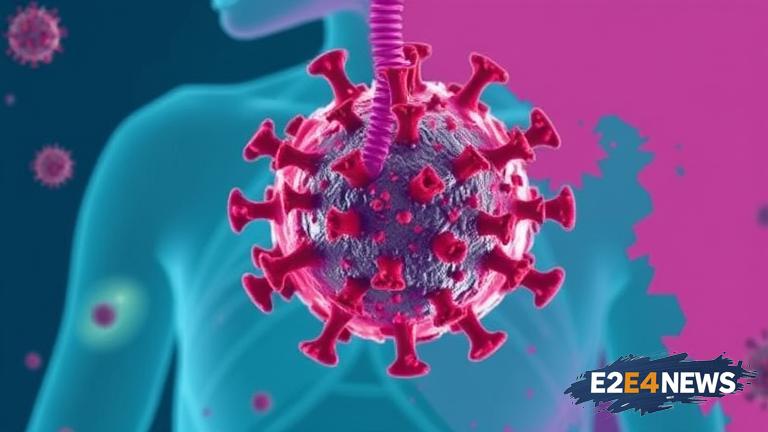The UK is experiencing a significant increase in Respiratory Syncytial Virus (RSV) cases, prompting health officials to issue a warning to parents and caregivers. RSV is a common and highly contagious virus that affects people of all ages, but it is most severe in young children and older adults. The virus can cause mild, moderate, or severe symptoms, ranging from a runny nose and cough to bronchiolitis and pneumonia. According to recent data, there has been a notable rise in RSV cases across the UK, with many hospitals and healthcare facilities reporting an increase in admissions. Health experts attribute the surge in cases to the easing of COVID-19 restrictions and the resulting increase in social interactions. As people return to their normal routines, the risk of transmission has increased, particularly among vulnerable populations such as young children, older adults, and those with underlying health conditions. The UK’s National Health Service (NHS) has issued guidance on how to prevent the spread of RSV, including frequent handwashing, avoiding close contact with anyone who is sick, and keeping surfaces clean. Parents and caregivers are also advised to be aware of the symptoms of RSV, which can include a runny nose, coughing, sneezing, and fever. In severe cases, RSV can cause bronchiolitis, an inflammation of the small airways in the lungs, which can lead to difficulty breathing and require hospitalization. The NHS has also reminded parents that RSV is a common virus and that most children will experience it by the time they are two years old. However, some children are at higher risk of developing severe symptoms, including those born prematurely, those with heart or lung disease, and those with weakened immune systems. To reduce the risk of transmission, parents are advised to keep their children home from school or daycare if they are showing symptoms of RSV. Additionally, healthcare professionals are urging people to get vaccinated against flu, as this can help reduce the risk of complications from RSV. The UK government has also announced plans to roll out a new RSV vaccine for pregnant women, which is expected to provide protection for newborns. The vaccine, which is still in the experimental stages, has shown promising results in clinical trials and could potentially reduce the number of RSV cases in the UK. As the situation continues to evolve, health officials are monitoring the situation closely and providing updates to the public. In the meantime, parents and caregivers are advised to remain vigilant and take precautions to protect themselves and their loved ones from the spread of RSV. The rise in RSV cases has also sparked concerns about the potential impact on the NHS, which is already facing significant pressures. Hospital admissions for RSV are expected to increase, which could put additional strain on healthcare resources. To mitigate this, health officials are working to increase awareness of RSV and promote preventive measures, such as handwashing and social distancing. The UK’s Chief Medical Officer has also issued a statement urging people to take RSV seriously and to take steps to protect themselves and their loved ones. As the UK continues to navigate the challenges posed by RSV, health officials are working tirelessly to provide guidance, support, and care to those affected. The situation is being closely monitored, and updates will be provided as more information becomes available.





